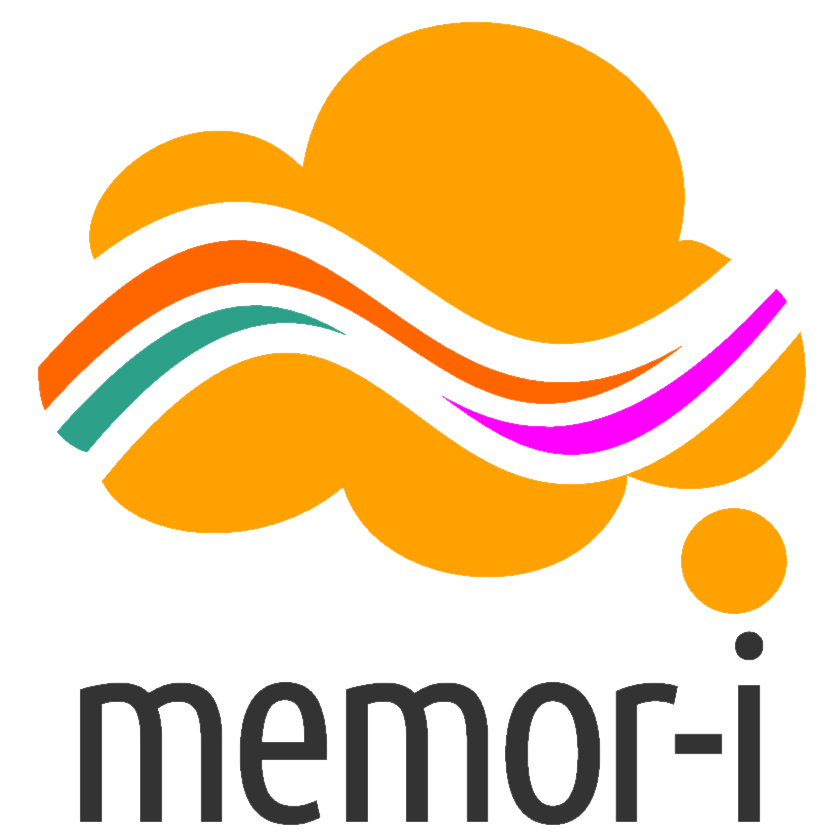Ecosyste.ms: Awesome
An open API service indexing awesome lists of open source software.
https://github.com/scify/memor-i-studio
A Laravel web-application that allows users to insert cards, sounds and images in order to create their own game for the blind!
https://github.com/scify/memor-i-studio
composer css3 hacktoberfest html javascript laravel laravel-framework php
Last synced: about 2 months ago
JSON representation
A Laravel web-application that allows users to insert cards, sounds and images in order to create their own game for the blind!
- Host: GitHub
- URL: https://github.com/scify/memor-i-studio
- Owner: scify
- License: apache-2.0
- Created: 2016-12-29T10:27:29.000Z (about 8 years ago)
- Default Branch: master
- Last Pushed: 2024-10-29T07:48:33.000Z (2 months ago)
- Last Synced: 2024-10-29T08:30:38.577Z (2 months ago)
- Topics: composer, css3, hacktoberfest, html, javascript, laravel, laravel-framework, php
- Language: PHP
- Homepage:
- Size: 50.1 MB
- Stars: 3
- Watchers: 7
- Forks: 0
- Open Issues: 0
-
Metadata Files:
- Readme: README.md
Awesome Lists containing this project
README
# Memor-i Studio

[Memor-i](https://www.youtube.com/watch?v=uRpUeqyN1eA) is a Memory card game especially tailored to meet the needs of
blind people.
[Memor-i Studio](https://memoristudio.scify.org/), is an online games repository that people can use in order to create
their own flavors of Memor-i game!
## Installation Instructions
Please read thoroughly the following guid/steps, to set up Memor-i Studio.
## Pre-installation requirements
This project assumes working installations of the following technologies / components:
1. [PHP](https://php.net/) (version >= `8.1`)
2. [MySQL](https://www.mysql.com/)
3. [composer](https://getcomposer.org/) (PHP package manager)
4. [npm](https://www.npmjs.com/get-npm) (Front-end dependencies package manager)
5. [Laravel](https://laravel.com/)
6. [Apache Web Server](https://httpd.apache.org/) (or any other Web Server you are comfortable with)
## First time install (setup database and install dependencies)
## Docker option
You can use the `docker-compose.yml` file that exists at project roo, to quickly set up a docker container.
Just run
```bash
docker compose up
```
To fire up the container.
Then, you can enter the container by running
```bash
docker exec -it memori_studio_server bash
```
And from there, you can run all the `php artisan`, `composer`, and `npm` commands.
### Language and Framework Dependencies
Make sure php `8.1` is installed.
Install the [Laravel IMAP](https://github.com/Webklex/laravel-imap#installation) dependencies:
```bash
sudo apt-get install php*-imap php*-mbstring php*-mcrypt && sudo apache2ctl graceful
```
After cloning the project, create an `.env` file (should be a copy of `.env.example`), containing the information about
your database name and credentials.
### Environment file, Laravel/backend dependencies
After cloning the project, create an .env file (should be a copy of .env.example), containing the information about your
database name and credentials. After that, download all Laravel dependencies
through [Composer](https://laravel.com/docs/7.x/installation), by running
```bash
composer install
composer update
```
### Front-end dependencies
After all Laravel dependencies have been downloaded, it's time to download all Javascript libraries and dependencies. We
achieve that by using nodejs and its package manager, [npm](https://www.npmjs.com/).
A convenient way of installing multiple versions of nodejs and npm on a machine, is by installing and using Node Version
Manager, [nvm](https://github.com/nvm-sh/nvm).
So, when in project root directory, and after npm has been installed correctly, run
It is very easy to install multiple versions of NodeJS and npm, by
using [Node Version Manager (nvm)](https://github.com/creationix/nvm).
If you are using [`nvm`](https://github.com/nvm-sh/nvm), run this command in order to sync to the correct NodeJS version
for the project:
```bash
nvm install
nvm use
npm install
```
To download and install all libraries and dependencies.
### Compiling front-end assets
This project uses [Webpack and Laravel Mix](https://laravel.com/docs/7.x/mix) which is a popular toolkit for automating
painful or time-consuming tasks, like SASS compiling and js/css concatenation and
minification.
Since it is built upon webpack, you can use the following commands to compile the front-end assets:
```bash
npm run dev #for dev builds
npm run prod #for production builds
npm run watch #for dev builds, also enables hot changes on the files
```
### Database
Create the database schema:
```bash
php artisan config:clear
php artisan migrate
```
#### Add seed data to DB
Run ```php artisan db:seed``` in order to insert the starter data to the DB by
using [Laravel seeder](https://laravel.com/docs/7.x/seeding)
### Permissions
Fix permissions for storage directory:
```bash
sudo chown -R ${USER}:www-data storage
sudo chmod -R 755 storage bootstrap/cache
cd storage/
sudo find . -type f -exec chmod 664 {} \;
sudo find . -type d -exec chmod 775 {} \;
```
The commands above are also available with the permissions script, in the root directory of the project.
You can use it like this:
```bash
sudo ./set-file-permissions.sh www-data project_memori .
```
**Note:** `project_memori` should be the name of the server user.
## Apache configuration (optional)
```
cat /etc/apache2/sites-available/memoristudio.conf
ServerName dev.memoristudio
DocumentRoot "/path/to/memoristudio/public"
AllowOverride all
```
Make the symbolic link:
```bash
cd /etc/apache2/sites-enabled && sudo ln -s ../sites-available/memoristudio.conf
```
Enable mod_rewrite and restart apache:
```bash
sudo a2enmod rewrite && sudo service apache2 restart
```
## Without apache custom configuration
Navigate to the root directory of the project and run:
```bash
php artisan serve
```
and navigate to [localhost:8000](http://localhost:8000/).
And have write access to ```/home``` directory.
## Required steps for the server
### 1. Allow the uploading large files
In order for the app to work as expected, max size of files and timeout time must be set on the appropriate
configuration files for `php-fpm` and `nginx`.
1. For nginx
edit the `/etc/nginx/sites-enabled/memoristudio.server.org` file and add `fastcgi_read_timeout 300;`
2. For php-fpm
edit `/etc/php/8.1/fpm/` (or the corresponding php version) and change:
```text
max_input_time = 300
post_max_size = 200M
upload_max_filesize = 200M
```
### 2. Converting audio files to mpr with CBR (constant bit rate)
This project allows users to upload audio files. In order for the desktop application of Memor-i to operate correctly,
these files need to me in .mp3 format and have a CBR (constant bit rate), not a VBR (variable bit rate)
. [See more](https://www.lifewire.com/difference-between-cbr-and-vbr-encoding-2438423)
This project converts uploaded audio files appropriately, on the fly. For this to happen, we
use [avconv](https://libav.org/avconv.html) library. To install this library in a Unix-based machine,
check [this post](http://askubuntu.com/questions/391357/how-do-you-install-avconv-on-ubuntu-server-13-04).
You can see and modify the command we use for coverting the files in ```public/convert_to_mp3.sh```.
### 3. Converting image files to .ico files
This project includes special functionality to convert a game flavor cover image file into a .ico file, for usage when
the game runs. In order to accomplish this, we
use [ImageMagick tool](https://github.com/ImageMagick/ImageMagick). ImageMagick can be installed
like this:
```apt-get install imagemagick```
### 4. Building Windows executables
When an admin user publishes a game flavor, A `.jar` file is built for this game flavor. In addition, this application
uses
[Launch4J](http://launch4j.sourceforge.net/) in order to build also the windows executable
and [Inno setup](http://www.jrsoftware.org/isinfo.php) to build the installer.
The launch4J
application is included in ```public/build_app/launch4j``` as a standalone application.
In order to run Launch4J, you will also need to install Java.
Also, you will need to install the `zip` and `unzip` commands in Linux:
- `sudo apt install zip`
- `sudo apt install unzip`
For building the Windows installer for the .exe that Launch4J built, this project
uses [Inno Setup-exe-builder](https://github.com/scify/innosetup-exe-builder?tab=readme-ov-file#inno-setup-exe-builder),
an external service for compiling executables to Windows installers.
So you will need to setup and have this service running, and then change the `WINDOWS_SETUP_SERVICE_URL` variable in `.env`.
## Deploying
You can run either ```php artisan serve``` or set up a symbolic link to ```/path/to/project/public``` directory and
navigate to http://localhost/{yourLinkName}
## Required steps for Production server
### Required steps for uploading large files
In order for the app to work as expected, max size of files and timeout time must be set on the appropriate
configuration files for `php-fpm` and `nginx`.
1. For nginx
edit the `/etc/nginx/sites-enabled/memoristudio.scify.org` file and add `fastcgi_read_timeout 300;`
2. For php-fpm
edit `/etc/php/VERSION/fpm/` (or the corresponding php version) and change:
* max*input*time = 300
* post*max*size = 200M
* upload_max_filesize = 200M
3. Make sure that the `project_memori` user belongs to group `www-data`
### Mailgun Considerations
Make sure that the production server IP is whitelisted in Mailgun.
## License
This project is open-sourced software licensed under
the [Apache License, Version 2.0](https://www.apache.org/licenses/LICENSE-2.0).
Memor-i Studio has been created by [Science For You (SciFY)](https://www.scify.org), a Greek not-for-profit
organization.
The Memor-i Studio project has been funded
by [Public Benefit Foundation John S. Latsis](https://www.latsis-foundation.org/eng)
